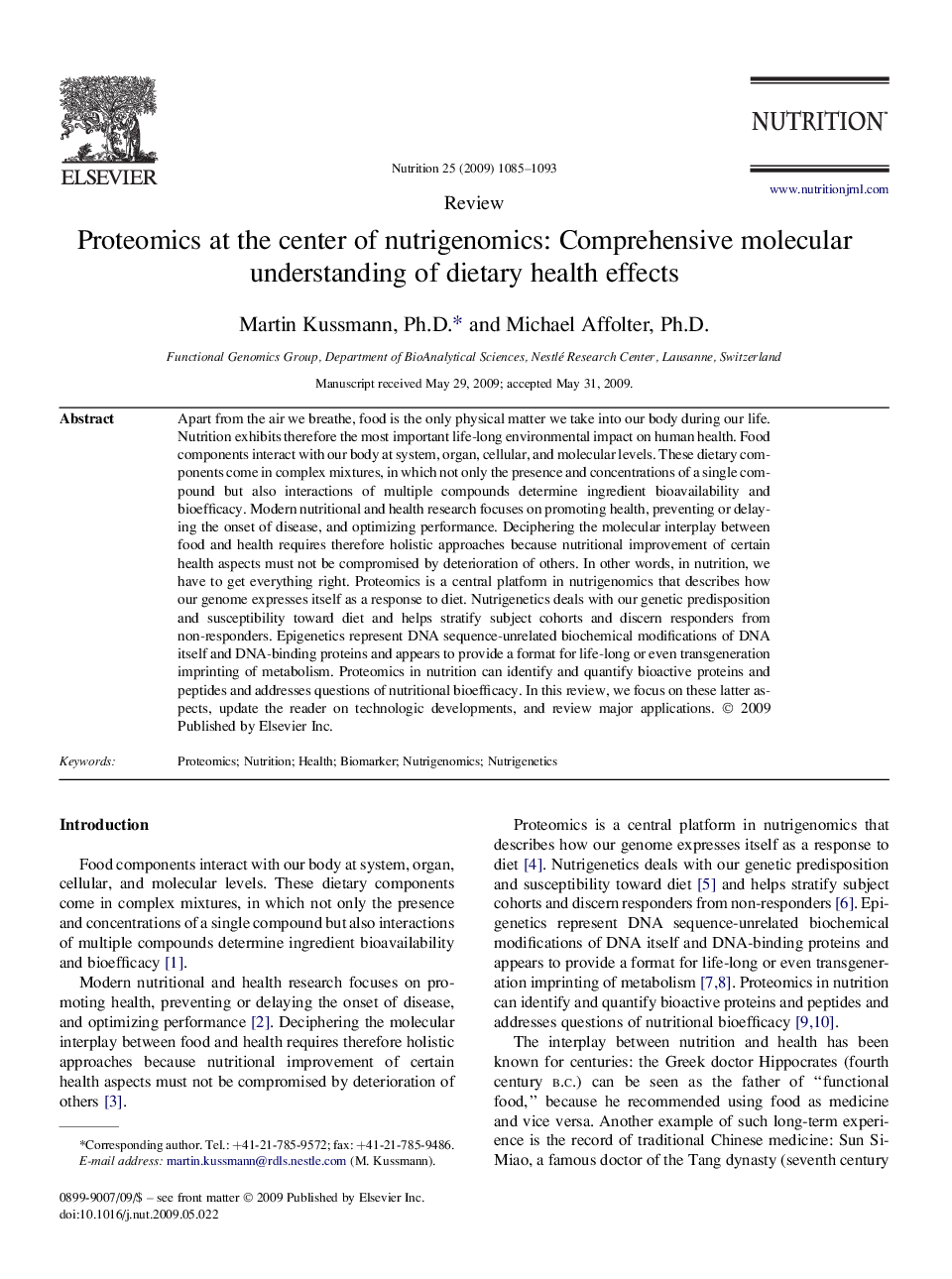| Article ID | Journal | Published Year | Pages | File Type |
|---|---|---|---|---|
| 3277223 | Nutrition | 2009 | 9 Pages |
Apart from the air we breathe, food is the only physical matter we take into our body during our life. Nutrition exhibits therefore the most important life-long environmental impact on human health. Food components interact with our body at system, organ, cellular, and molecular levels. These dietary components come in complex mixtures, in which not only the presence and concentrations of a single compound but also interactions of multiple compounds determine ingredient bioavailability and bioefficacy. Modern nutritional and health research focuses on promoting health, preventing or delaying the onset of disease, and optimizing performance. Deciphering the molecular interplay between food and health requires therefore holistic approaches because nutritional improvement of certain health aspects must not be compromised by deterioration of others. In other words, in nutrition, we have to get everything right. Proteomics is a central platform in nutrigenomics that describes how our genome expresses itself as a response to diet. Nutrigenetics deals with our genetic predisposition and susceptibility toward diet and helps stratify subject cohorts and discern responders from non-responders. Epigenetics represent DNA sequence-unrelated biochemical modifications of DNA itself and DNA-binding proteins and appears to provide a format for life-long or even transgeneration imprinting of metabolism. Proteomics in nutrition can identify and quantify bioactive proteins and peptides and addresses questions of nutritional bioefficacy. In this review, we focus on these latter aspects, update the reader on technologic developments, and review major applications.
